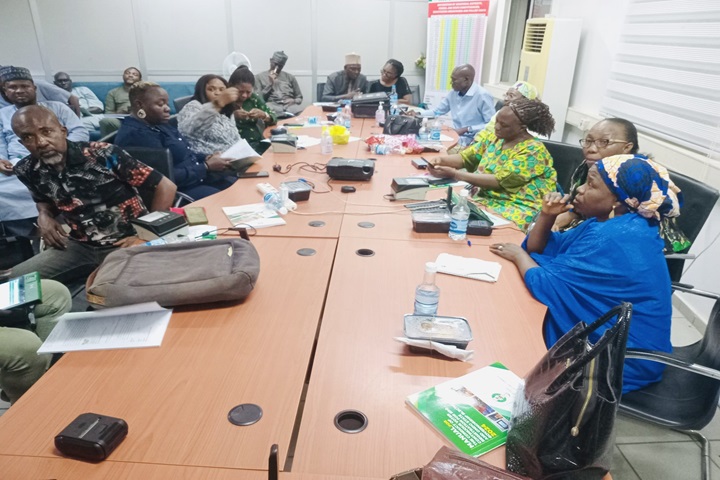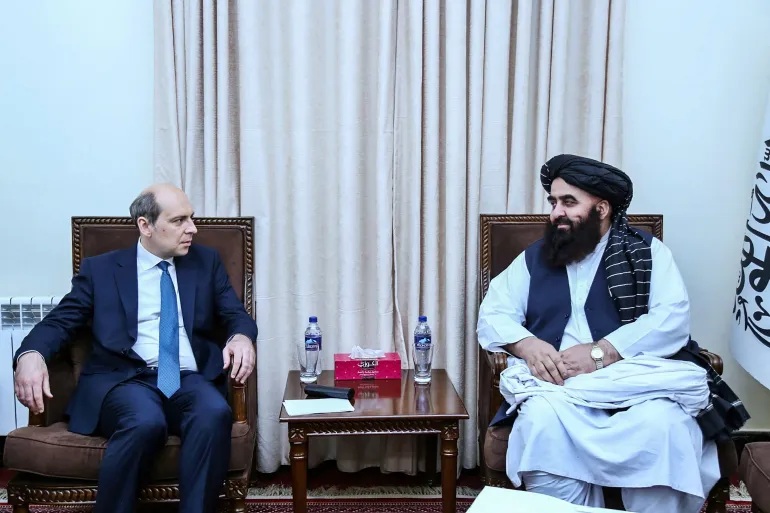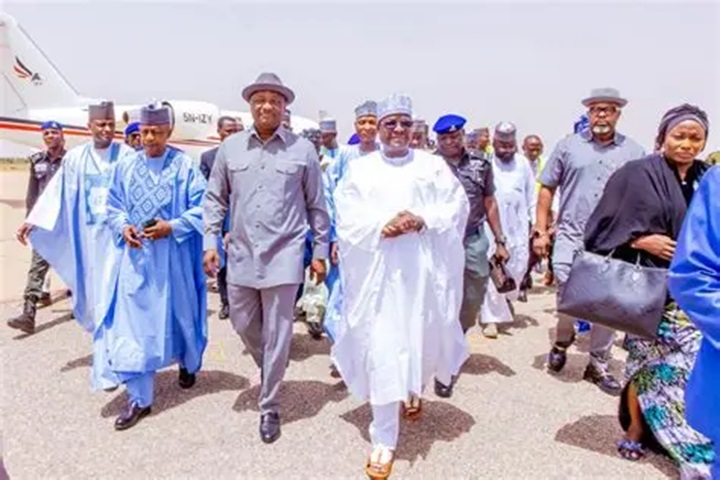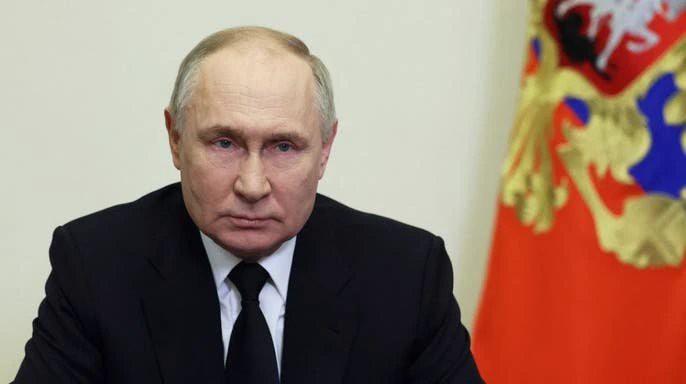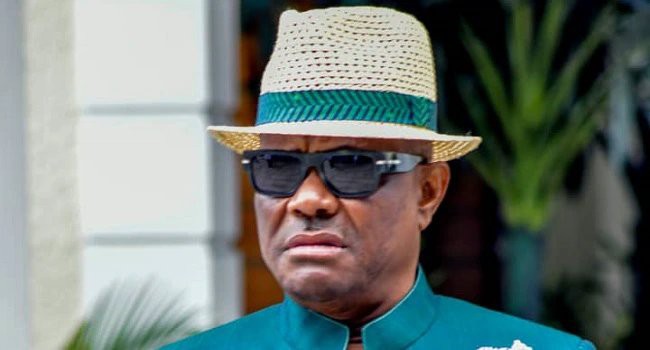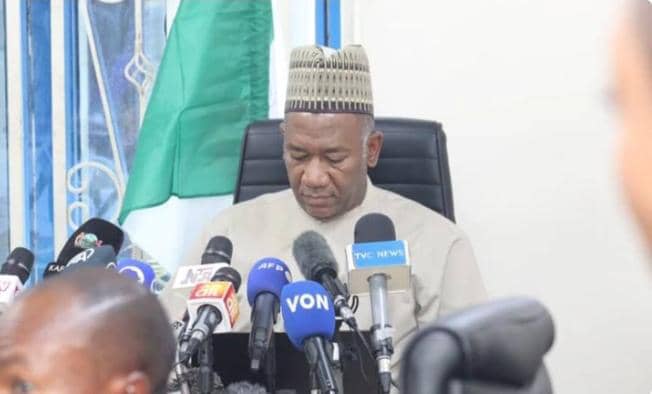Africa
When hunger protests become treasonable and criminal ~ by Law Mefor

The country’s hunger protests have brought about a great deal of sorrow, violence, and property destruction, which have taken a toll. Over twenty lives have been lost. These tragedies could have been prevented if better coordination and cooperation had existed between the government, security services, and protesters.
Sadly, if the protest fizzles out without achieving any of its objectives despite the heavy cost it has incurred, blame it on the factors reviewed hereunder.
It is not impossible for peaceful protests to happen in the current situation. Peaceful protests have occurred in Nigeria in the recent past. Furthermore, as long as protest stays within the bounds of the law, it is an essential component of any functional democracy.
To be clear, the freedom to protest is guaranteed by United Nations Human Rights Charter No. 12, African Union Human Rights Charter No. 9, (all of which Nigeria has ratified) and articles 39 and 40 of the 1999 Constitution (as amended). Protests are therefore morally and legally acceptable, and they even constitute a fundamental human right.
Nonetheless, human rights are not absolute. Rights come with obligations. Anyone participating in a protest advocating for fundamental human rights must do so without violating the rights of others.
Protests must also not tolerate criminal actions or acts of treason, such as pushing for regime change. This was what led to the motivation of some protesters to protest against the protest. Some even later protested against protesting against the protest.
Although the government acknowledged the right of Nigerians to protest, it questioned how arson and other criminal activity could be prevented. As a result, security agencies, in particular the police, insisted that the protest organisers reveal their identities.
The government was initially alarmed by the organisers’ lack of identity and the protest’s general vagueness, even though a few figures are known—Omoyele Sowore, Deji Adeyanju, and Ebun-Olu Adegboruwa SAN, who wrote the IGP as the protesters’ lawyer—as well as a few others who also appeared but were of a sundry kind based on reputation.
The truth is that there was a glaring lack of leadership and coordination. Omoyele Sowore, for instance, has been abroad in the United States, and Ebun-Olu Adegboruwa, in contrast to Gani Fawehmi, was nowhere to be seen throughout the protests, limiting his involvement to a legal brief.
He also never disclosed whether or not he agreed with the demonstrators on any key demands. The only person who could be considered a leader in the Abuja protests was Deji Adeyanju, who led from the front.
That explains why the IGP called the protest organisers “faceless” on multiple occasions. IGP once questioned how he could have delivered the court order to the demonstrators that were hiding in the social media and refusing to disclose their identities or addresses.
The majority of Nigerians concurred that the protest was required to emphasise that the country’s levels of hunger and suffering had become intolerable. But the lack of clear leadership and coordination became its undoing, like what happened in the EndSars protest of 2020.
For instance, the start and finish points of the protest processions in each area would have been decided upon by the organisers and the security services. This way, the security agencies will be able to deal with the miscreants and criminals who organised their own protests for looting and plundering.
Therefore, those who accuse the security services of trying to suppress the protest needed to have taken into account this serious omission. Though the government equally made a significant mistake in its assessment of the protest.
Erring on the side of caution, the protest should not have been permitted at all if the two requirements—knowing the identities of the organisers and reaching an agreement on the routes of the protest processions’ takeoff and finish points—were not agreed. The reason being that controlling the protest would be difficult, if not impossible, as the protest fatally proved soon after takeoff.
The government ought to have filed a lawsuit over those prayers rather than frivolously requesting that the demonstrators be confined inside Moshood Abiola Stadium in Abuja or any other location.
Then there’s the problem of demonstrators’ staccato and shifting demands. The protesters’ vague and confusing demands amply demonstrated the lack of effective organisation. As of the most recent tally, the demonstrators’ demands came in at least six different versions, ranging from “end hunger” to “end bad governance” and “end bad government” (regime change).
It does seem that the various people and CSOs that made up the protest movement each had a unique set of demands based on a variety of motives. This is a tactical error in and of itself. Given the fatality of flaws in the current protest, the organisers should have settled on a set of objectives that are realistic, achievable, and quantifiable rather than allowing shifts to vacuous demands that are beyond the core goal of the protest.
Unfortunately, the ambiguities in their demands escalated to calls for foreign countries to intervene militarily and to replace the Tinubu government. To emphasise their rejection of the Nigerian government as currently constituted, this group flew Chinese and Russian flags.
They also directly invited Russia to intervene, as they had done in Burkina Faso and Niger, where the military recently toppled democratically elected governments. Thus they deviated from the primary goal of the hunger protest and shifted to what the government interpreted as treason, rightly or wrongly.
Speaking on behalf of the National Security Council, Chief of Defence General Chris Musa called this an act of treason after that august body’s meeting on the protest.
While flying a foreign flag during protests might not be treason, the government can legitimately argue that advocating for regime change and calling on foreign forces to step in after such forces have committed a similar act in another nation constitute treason.
It is imperative that protests be planned appropriately going forward. The organisers need to take the initiative and decide on the paths for the processions in the future. Both sides need to adopt a new perspective on protest; demonstrators and their organisers need to understand that using violence is not necessary and should be avoided.
Peaceful protests have happened in Nigeria on several occasions, including in 2012 during the “Occupy Nigeria” protests and fuel hike protests during the days of Senator Adams Oshiohmole as NLC president.
The government should be more tolerant, especially the IGP, whose PhD thesis, one understands, was on protest management. The police are the most valuable social asset of any nation, and ours must make every effort to remain so in the eyes of the citizens. Nigerians have no other police to call their own.
Furthermore, those protest organisers who are afraid to reveal their faces and lead from the front for fear of whatever should stop organising protests that put innocent Nigerians in harm’s way, as they did again with the ongoing End-Hunger protest, which has so far claimed over 20 irreplaceable lives.
Lastly, protest cannot be suppressed in a real democracy or by a president who himself is a prominent protester and an ace democrat; protest also shouldn’t be permitted in a way that makes its management impossible just because the organisers are anonymous and making demands that aren’t even within the president’s constitutional powers.
*Dr. Law Mefor, an Abuja-based forensic and social psychologist, is a fellow of The Abuja School of Social and Political Thought; drlawmefor@gmail.com; Twitter: @Drlawsonmefor.
End-Hunger Protest: Soludo’s solution and what governors can do to end hunger

Governor Chukwuma Charles Soludo of Anambra State
Once more, food insecurity and the hunger crisis have forced Nigeria to face a crossroads. Protests have erupted across the nation, and young people are going on the rampage in numerous states, resulting in sorrows, tears, and blood.
At least 20 lives have been tragically lost due to the protest, and properties have been destroyed. While Anambra youths are not participating, their governor has flagged off the “FARM TO FEED” campaign to end hunger in the state in a few months.
With the twin economic policies of the Tinubu administration—fuel subsidy removal and the floating of the Naira—causing suffering and hunger, many Nigerians wonder what the state governments have done to address hunger.
There are three levels of government in Nigeria’s presidential democracy, each with specific constitutional duties. However, since most state governments have failed to provide for their citizens as they ought to, all eyes have been on the federal government for democracy dividends.
Professor Chukwuma Soludo, the governor of Anambra State, is one state governor who stands out for being very distinct. With the launching of the “FARM TO FEED” campaign, he provided a novel and practical response to the countrywide hunger protest.
By launching the campaign, Soludo gave Ndi Anambra a direct route to producing what they eat and eating what they produce in a few months. This back-to-farm campaign is expected to result in a bumper harvest in just one year.
If all the governors do something similar and take agriculture seriously, a multiplication of this method throughout the 36 states of the federation and the Federal Capital Territory will simply eradicate hunger and bring down food prices nationwide.
Even though Anambra youths are not participating in the nationwide street protests taking place in most of the federation’s states, the state government’s response to the ongoing hunger protest is undoubtedly a historical, realistic, and constructive step towards contributing to the solution and addressing the hunger crisis and food insecurity in the country.
Soludo applauded the Anambra youths for forgoing protests in the streets and joining his government’s new method of putting an end to hunger in Anambra and perhaps the nation. In the words of Soludo: “Our youths are saying that while complaining and protesting are good things, it is better to take action.”
Soludo correctly pointed out that decades of neglecting agriculture was the root cause of the hunger crisis and that this would spell disaster for the country if proper measures were not taken. The majority of food products, including yam, rice, cassava, beans, and so forth, are now heavily imported into the country, even though the nation ought to be exporting these products on a global scale.
The governor of Anambra state made the point that the only way to end hunger in Nigeria permanently is for the people to take collective action in collaboration with the government.
He remembered the years of hardship between 1982 and 1985 when people had to wait in queue without end to get essential commodities like rice, vegetable oil, sugar, salt and even detergents. Since everyone can do something, Soludo wants the complaints to shift to actions.
According to the international economist cum governor, the only method to solve food inflation, which is a significant cause of inflation, is to lower food prices. However, lowering food prices requires addressing the food supply side of the equation, which in turn addresses poverty.
According to him, his government is already implementing some policies that are addressing incentives, such as providing commercial farmers with inexpensive financing through cheap capital, improved seedlings and certain inputs that are subsidised, building rural infrastructure to reduce post-harvest losses, and enhancing the supply chain to urban areas.
He promised to continue paying close attention to the insecurity that prevents farmers from working their land. More than two million palm, coconut, and other uncommon economic tree saplings as well as cash crops have already been given to Ndi Anambra by the Soludo government.
Ten million of these tree seedlings and cash crops are intended to be shared by his government in the end. This is a component of the state’s new industrial ecosystem and wealth generation. Also, his government has been offering smallholder farmers various forms of assistance.
This is a straightforward plan and cooperation agreement between the Anambra people and all levels of government to end hunger and guarantee a large food supply on a sustainable basis within the next 12 months.
Even though his government would offer all the incentives, according to Soludo, it would all be for nothing if there were no citizens or young people to farm. He reminded the public servants that farming is the only extra job permitted by the constitution for public employees to work part-time, meaning that everyone can farm.
Thus, he desired farming and agriculture to become a new source of pride for all, not just young people alone. “If you can’t feed the nation, at least feed yourself or even your family… Let us turn every vacant piece of land into a farm, even if it is five square meters. Rent a space if you can, but plant something,” Soludo urged.
He also pointed out that farming is possible in urban centres thanks to a growing trend of farming in sacks. As a result, he believes that everyone can produce something, whether it be vegetables, onions, peppers, potatoes, or tomatoes.
According to Soludo, he won’t consider his government a complete success until hunger is fully subdued in Anambra. The governor is aiming to create new enterprises to process the fruits and sell them outside the state, starting with food production.
Added to this, he guaranteed that the agro-revolution is a component of the organic farming and regenerative agriculture he launched two years ago, which lessens the emphasis on fertiliser use in favour of returning to nature and producing and consuming organic food, which prolongs and improves human life.
Governor Soludo listed working with local governments, churches, schools, and other organisations as one of the implementation tactics to make sure that everyone is involved and every space is used for cultivation.
The other is developing plans to encourage public employees to spend some time farming and rewarding those employees and political appointees who produce the most food or livestock.
Declaring that the evaluation phase in a year would be called “operation show your farm,” he pledged to take the lead by returning to the farm himself, even with his demanding schedule as governor.
Governor Soludo’s statement, ” Ndị Anambra, Nigerians, we are Nigerians! Nigeria is the biggest black nation on earth. There is nothing we set our mind to do that we cannot achieve if everybody takes responsibility. We have a saying in Igbo that “aka aja na-ebute ọnụ mmanụ mmanụ” (It’s by soiling your hands that you become entitled to having an oily mouth) made his case.
Let the governors who don’t care much about agriculture take a similar step. Let every state strive to produce as much as it consumes. In this manner, food imports will end, hunger will be eliminated, and foreign exchange previously used for food imports will be released to other vital sectors.
Dr Law Mefor, an Abuja-based forensic and social psychologist, is a fellow of The Abuja School of Social and Political Thought; drlawmefor@gmail.com; Twitter: @Drlawsonmefor.
For Diaspora Digital Media Updates click on Whatsapp, or Telegram. For eyewitness accounts/ reports/ articles, write to: citizenreports@diasporadigitalmedia.com. Follow us on X (Fomerly Twitter) or Facebook



